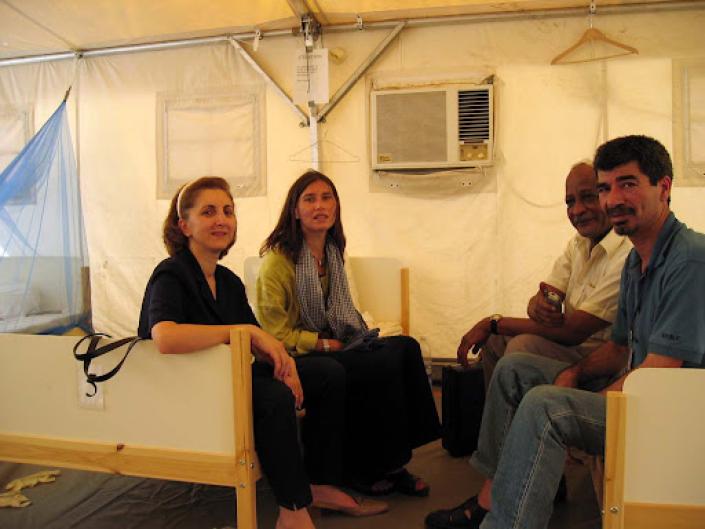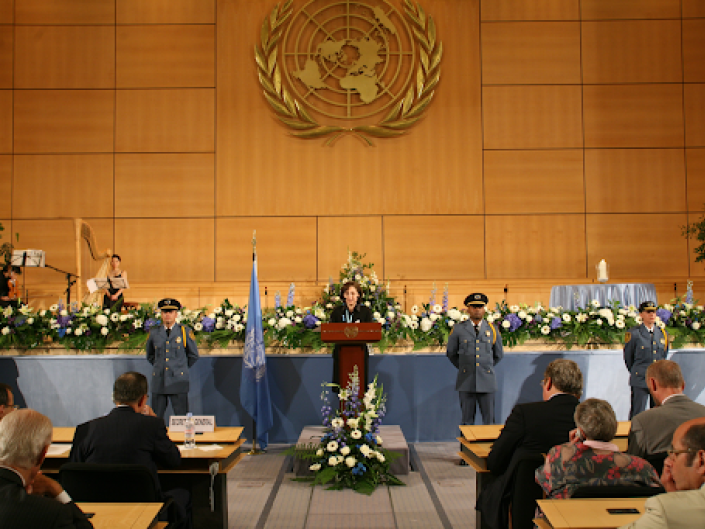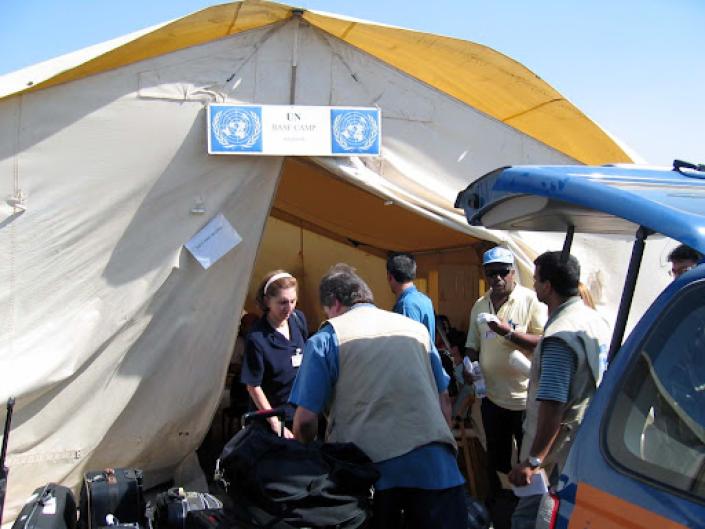Former staff the UN Office for the High Commissioner for Human Rights (OHCHR), survivor of UN Baghdad bombing in 2003



How were you affected by the Canal Hotel attack as an aid worker?
I arrived in Switzerland in 1993 as an Iraqi refugee and joined OHCHR in 1998. I always wished to be part of the first group that goes to Iraq to help restore stability and security to the country, help its people to rebuild the infrastructure, and provide the necessary requirements of humanitarian needs, human rights and justice after more than 30 years of a dictatorial regime, wars, economic embargo and the collapse of the political, financial, health and educational systems.
In 2003, I was part of the group accompanying SRSG [Special Representative of the Secretary-General for Iraq] Sergio de Mello in Iraq, to join many other international organizations’ workers, and the most wonderful, knowledgeable and helpful local staff.
Although the mission’s presence did not exceed two and a half months, it managed to gain the confidence of the Iraqis, and its doors were open to them for advice, needs and assistance. Therefore, the bombing of the headquarters was a demolition of all this effort, and of the hope for a better tomorrow for Iraq and the Iraqis. I cannot describe the pain and distress I felt following the collapse of all this noble effort, hope, enthusiasm and work represented by the United Nations and its employees.
The loss of 22 colleagues and friends and the injury of more than 180 international and local workers, who believed in the principles of their organization and tried to help people, was not easy to comprehend. I left Iraq with a heart full of grief for a country where we were unable to accomplish our noble mission, and for friends we unjustly lost.
Twenty years later, what does the attack mean to you and your work?
The attack may have changed my personal opinion and philosophy of life, but it did not change my belief in humanitarian action and the necessity and importance of our organization’s work in all fields. On the contrary, the need today for the work and presence of the United Nations is more urgent than at any other time, especially when we see all the world’s disasters and tragedies at the humanitarian, economic, health, educational and human rights levels.
On the personal level, I gave more importance to family ties and felt the necessity of raising my children in a manner that makes them strong and capable of relying on themselves, no matter what they face in life. I put more effort in planting the principles of love, tolerance, justice and equality in their souls.
What does the attack and the UN’s response convey to the world today?
The attack was a clear message that the United Nations has many enemies as well as supporters. And despite our bitter experience, our organization has to review its policies, rules and directives to provide a more reasonable level of humanitarian protection and support to its staff still present and working in danger zones across the world.
Also, this experience is a reminder to urge Member States to cooperate and support the work of the United Nations for a better and just world.